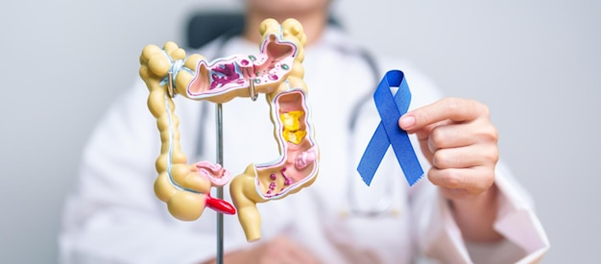Perceiving the early signs of especially critical health issues like colorectal cancer can significantly improve the outcome of treatments. Early detection is crucial. This blog will shed light on how early recognition can empower you to take proactive steps towards prevention and detection of this condition.

What is Colorectal Cancer and Why Early Detection Matters
Colorectal cancer is a type of cancer that develops in the colon or rectum, parts of the large intestine. It typically begins as small growths, called polyps, which can turn into cancer over time if not spotted and removed. Understanding this progression helps demystify how cancer forms, and why catching it early is vital.
In India, colorectal cancer is becoming increasingly prevalent, mirroring global trends. Statistics show that the number of cases has been rising steadily. Compared to some Western countries, the detection rates in India remain concerningly low, mainly due to delayed diagnosis. This underscores the critical need for awareness and proactive health monitoring.
Recognizing Key Symptoms
Recognizing colorectal cancer symptoms early can hugely impact your health. Here’s what you should be on the lookout for:
- Changes in bowel habits: Watch for persistent diarrhea or constipation that doesn’t seem to resolve.
- Signs of colon issues: Notice any narrow stools that last more than a few days.
- Blood in the stool: This could be bright red or very dark.
- Rectal cancer symptoms in females: Women might experience pelvic pain.
Don’t overlook less obvious signs like unexplained weight loss or persistent fatigue. These are early signs of colon cancer that shouldn’t be ignored. If any of these symptoms persist, visiting a doctor is crucial. Early interaction with healthcare can make a significant difference in outcomes.
The Role of Screenings and Lifestyle Choices in Prevention
Screenings, like colonoscopies, play a vital role in catching stage 1 colon cancer symptoms before they advance. Experts recommend starting regular screening by age 45, but if you have a family history of cancer, earlier might be better.
Lifestyle decisions significantly affect your risk too. Consider the following changes:
- Dietary choices: Include more high-fiber foods. Minimize intake of processed meats to potentially lower risk.
- Exercise regularly: Staying active can help maintain a healthy weight and reduces risk.
- Avoid smoking: Quit smoking, as it is linked to increased cancer risk.
Family history is another personal aspect to assess. If colorectal cancer runs in your family, talk to your doctor about how it might affect your risk.
Debunking Myths and Understanding Other GI Conditions
Many myths about colorectal polyp symptoms and the disease itself abound. For example, it’s a common misconception that only older adults are affected. In reality, it can occur at any age.
Furthermore, the symptoms of colorectal cancer can sometimes mimic other GI issues such as irritable bowel syndrome. Understanding these differences is vital. If you’re uncertain whether your symptoms are serious, seeking medical advice promptly is the best course of action.
Family History, Gender Differences, and Actions to Take
Having a family history of colorectal cancer increases your risk. It’s wise to discuss these details with your healthcare provider, who can help design a personalized screening plan for you.
There can also be gender differences in how symptoms present. For example, rectal cancer symptoms in females may manifest differently and sometimes later than in males. This difference emphasizes the need for gender-sensitive education about signs of colorectal cancer.
In terms of actions to take, remember these points:
- Be proactive: If you notice symptoms, see a doctor without delay.
- Get informed: Understanding your family history is essential in assessing your own risk.
- Schedule regular check-ups: Routine screenings can catch issues early when they’re easier to treat.
Conclusion: Taking Charge of Your Health
Awareness is your best defense. By spotting rectal cancer symptoms early, you can better manage risks. Through continued awareness and regular, simple health checks, you maintain control of your health and potentially prevent severe outcomes.
At Life Care Hospital, we prioritize your well-being with routine health checks and expert care. Stay informed, proactive, and make regular screenings a habit to safeguard your future health. Visit us today for personalized care and support!



